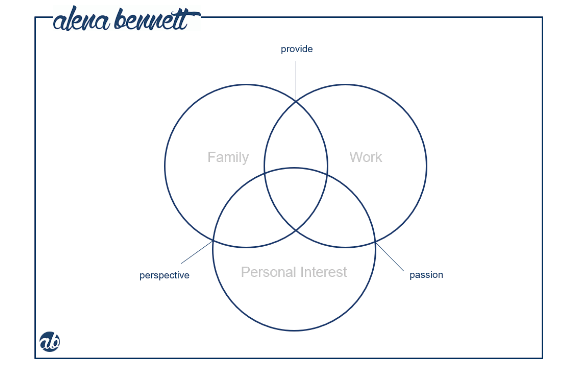I love my work.
I care deeply about my team, my clients and the communities I serve.
I obsess about quality and doing my best to deliver value.
I absolutely hate missing a deadline.
Yes...I'm ambitious!
Fortunately, I'm blessed to be able to work with clients around the world (both 1:1 and in groups) who share many of the same attributes. One of the things that we also tend to have in common is that whilst we want to lead with significance and have a positive impact on the people around us, we strive to lead whole and full lives – not lives that are dictated by work.
I admit, this can be challenging.
I'm currently writing this from the beautiful Nuku'alofa in Tonga. This is where my mum is from, and where my parents, grandparents and countless cousins and aunties live. As soon as you step out of the airport you see and feel immediately the presence of 'Tongan Time'.
Slowing down can be frustrating!
Tongan time can look like you're watching a movie on slow motion. It can feel absolutely bewildering as you wonder why everyone is moving at snail's pace in no apparent order.
But the most confusing thing about Tongan time is that no one around you seems to care about the slowness and somehow everything still manages to get done!
I have to admit, there's an adjustment period that I need to go through when I arrive in Tonga. I have to remind myself that 'You're in Tonga now. They operate on Tongan time, so you need to increase your tolerance. Be patient, Alena.'
'Perhaps this is a good opportunity for you to slow down.'
Why CFOs need to slow down
One of the most important elements in both my coaching and team programs is the alignment sessions we have with the key stakeholders and sponsors of the programs. This ensures the maximum return on investment of the program for both the individual(s) I work directly with and the organisation.
In a recent alignment session with one of my exceptional CFOs, Chris, the concept of work-life balance was raised as an area of improvement they'd like to see through our work. The sponsor was concerned that, whilst currently delivering exceptional outcomes for the business, they had concerns that it was coming at a cost to Chris' life outside work and that Chris was at risk of burnout. Employee wellbeing is an important value of Chris' organisation, and as a senior executive, it was important that Chris walked the talk.
But how do you slow down when you love what you do?
This was the very challenge Chris was faced with. Chris loves working with his key stakeholders and is passionate about partnering them to capitalise on opportunities and solve problems. Chris didn't really want to slow down.
However, based on the alignment session we both knew that Chris' success would ultimately be measured by the ability to slow down.
The dissonance created by slowing down
I admit, even for me this felt a little odd. I'm usually trying accelerate a client's progress not slow it down! But success and progress mean different things to different people in different contexts. And our opportunity here was to reframe what success looked like and therefore what progress looked like.
This reframe was critical because 'going slow' was completely at odds with Chris' character – in fact, it was demotivating.
We came back to the other areas in Chris' life.
Chris and I asked 3 questions in 3 domains:
1. WORK: how can you do things differently to get 'better' results at work while doing less?
2. FAMILY: how can you restructure your family routine to improve the quality and frequency of time you spend with them?
3. PERSONAL INTERESTS: what other activities, outside work, light you up?
I can tell you, it wasn't easy for Chris to answer these questions.
And this was the growth.
When slowing down can be a CFO's greatest strength
Working through the approach from my model Chris continued to spend his time on things he has a passion for – they just included more things outside of work! Chris still had the comfort of knowing he's able to provide for his family – again, now in more ways than one. But possibly the most important outcome he's gained is greater perspective on what's important and what he can let go.
Chris hasn't dropped his standards nor has he 'let himself go'.
In fact, quite the opposite.
Chris:
- is now a deeper thinker, more readily able to slow down his thoughts to think about the bigger picture and therefore identify better opportunities and solve bigger challenges for the organisation.
- focuses first on the 'we' before 'me' and is delegating more effectively and is successfully facilitating better cross-functional conversations around the executive table.
- is more discerning with the work he does so he's able to spend more time 'above the line' and less time in the detail and weeds.
- Is a role model or the organisation's values and a more valuable partner to his CEO and Board chair.
They say you need to 'slow down to speed up' and when you're an action-oriented, results driven leader, it can feel ridiculous, uncomfortable or simply out of reach.
But here in Tonga, I have a choice. I can spend the next week banging my head against the wall in frustration over the slowness, or I can calm down, embrace the pace and have a joyful time with my family.
I choose the latter.
What activities do you do in your downtime?
How do you schedule downtime into your calendar?
How does downtime help you be a better CFO?
Love to hear your thoughts...


